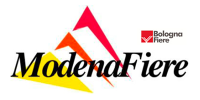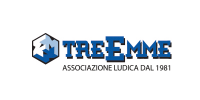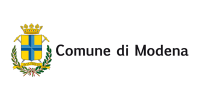Cookie Policy
Full-length policy
This extended privacy statement has been drawn up and customised specifically for this site on the basis of the provisions of art. 4 of the General Measures No. 229 of 8 May 2014, issued by the Guarantor for the protection of personal data and published in the Official Gazette No. 126 of 3 June 2014.
It integrates and updates other information already present on the site and / or released before now by the Authority, in combination with which it provides all the elements required by art. 13 of Legislative Decree 196/2003 and subsequent Provisions of the Authority for the protection of personal data.
Important:
We inform all third parties that the use of this information, or even parts of it, on other websites in reference to which it would certainly not be relevant and / or incorrect and / or inadequate may result in the imposition of heavy pecuniary penalties by the Authority for the Protection of Personal Data.
COOKIES AND SIMILAR TECHNOLOGIES
The so-called navigation tracking activities are aimed at analysing the websites visited, their pages and their specific contents, the times of the visits and their frequency.
Often such information is also associated with the user, without necessarily knowing what his/her name is or where s/he lives. Through this information related to habits, uses and consumption, their analysis and reprocessing it is possible to reconstruct the commercial profile aimed at so-called e-Targeted Advertising: the proposal of targeted products, services or contents.
From a technical point of view, this is done through the use of cookies by the vast majority of websites, which are small text files that the visited sites send to the user's terminal, where they are stored before being re-transmitted to the same sites on the next visit.
Cookies are different and have different functionalities and, according to the Privacy Guarantor, they can be split into:
A) technical cookies, those used for the sole purpose of “transmitting information over an electronic communications network or, to the extent strictly necessary, to the provider of an information society service explicitly requested by the subscriber or user to provide this service (Article 122, paragraph 1 of the Privacy Code)”.
Technical cookies can be divided into:
- browsing or session cookies – which guarantee the normal navigation and use of the website, allowing, for example, to make a purchase or authenticate to access restricted areas;
- analytical cookies – similar to technical cookies when used directly by the site operator to collect information, in an anonymous and aggregate form, on the number of users and how they visit the site;
- functional cookies – which allow the user to browse according to a set of selected criteria (for example, language, products selected for purchase) in order to improve the service provided;
B) profiling cookies (also called behavioural cookies) aimed at creating user profiles, and used in order to send advertising messages in line with the preferences expressed by the user in the context of web browsing (Behavioural Advertising).
They collect information relating to users’ browsing habits, to the sites and pages visited, the time spent on the site; subsequently they show on other websites’ related advertisements (e-Targeted Advertising).
There are also other similar technologies (web beacons, flash cookies, Silverlight application storage) that are also able to store and read data files on the user’s computer;
C) Third-party cookies
‘Third Party’ cookies are linked to services provided by third parties, such as the Facebook ‘social plugin’ and monitor the effectiveness of advertising. The third party provides these services in exchange for information regarding the user’s visit to our site. The third-party cookie suppliers thus also have the obligation to comply with the relevant legislation. For this reason we refer to the links of the web pages of the third-party site, where the user can find the consent forms for cookies and their relative information.
http://www.google.com/intl/en/policies/technologies/types/
https://developers.google.com/analytics/devguides/collection/analyticsjs/cookie-usage
https://www.facebook.com/help/cookies/?ref=sitefooter
https://fbcdn-dragon-a.akamaihd.net/hphotos-ak-xpa1/t39.2365-6/851576_193932070769264_1415834022_n.pdf
https://support.twitter.com/articles/20170514
Due to the particular invasiveness that such devices may have in the private sphere of users, European and Italian legislation requires the user to be adequately informed about their use and express their valid consent.
THE RULES OF THE PRIVACY GUARANTOR
With the General Measure no. 229 of 8 May 2014, published in the Official Gazette No. 126, 3 June 2014 (which came into force on 3 June 2015 – Article 5, compliance times), the National Guarantor regulated the use of profiling cookies, as defined in art. 1, letter b): profiling cookies are designed to create user profiles and are used in order to send advertising messages in line with the preferences expressed by the user in the context of his/her online activity. Due to the particular invasiveness that such devices may have in the private sphere of users, European and Italian legislation requires the user to be adequately informed about their use and express their valid consent.
Art. 122 of the Privacy Code states that “the storage of information in the terminal device of a contractor or a user or access to information already filed is permitted only on the condition that the contractor or user has given his/her consent after have been informed through the simplified procedures referred to in Article 13, paragraph 3 (Article 122, paragraph 1 of Code)”.
Therefore, cookies perform different and important functions within the network, which affect the personal data of users, which are subjected to treatment without the necessary information and consent procedures provided for by the privacy legislation in force.
This is why, according to the Guarantor, any decision regarding the methods of online disclosure and consent, basically covering anyone with an Internet site, will therefore have a huge impact on a great number of subjects who, as said above, present nature and characteristics very different from one another.
The Guarantor, aware of the scope of this decision, therefore deemed it necessary for the measures prescribed in the aforementioned provision – pursuant to the provisions of art. 122, paragraph 1, of the Code – on the one hand, to be such as to allow users to express fully informed choices on the installation of cookies through the expression of specific consent (as required by Article 23 of the Code), and on the other hand, they present the least possible impact in terms of the continuity of navigation of the users and the fruition, on their part, of online services.
These opposing needs, which clearly emerged also during the public consultation and the meetings held by the Authority, were initially taken into account in determining the ways in which the disclosure could be simplified.
Furthermore, it is the Guarantor’s belief that the two issues, of information and consent, must necessarily be treated jointly, in order to avoid the use of online consenting modalities that require excessively complex operations by the users voiding the simplification offered by the information policy.
In light of the above, this information is communicated to users to state that the cookies used on this website are of the following types:
Technical cookies: allow the user optimal and fast navigation through the website and the efficient use of the services and / or the various options that it offers, allowing for example to make a purchase or to authenticate to access restricted areas. These cookies are necessary to improve the usability of the website, but can still be deactivated.
Third-party cookies: these are cookies installed on the user's terminal by third-party site managers, through this website. Third-party cookies, primarily for the purpose of analysis, derive mostly from the functionality of Google Analytics [see point C above]
It is possible to have more information on Google Analytics by clicking on the following link: http://www.google.it/intl/it/analytics.
To disable cookies and to prevent Google Analytics from collecting data on navigation, you can download the browser add-on to disable Google Analytics by clicking on the following link: https://tools.google.com/dlpage/gaoptout.
Browser settings:
We also inform you that the user can freely and at any time configure his/her privacy parameters in relation to the installation and use of cookies, directly through his navigation programme (browser) following the relative instructions.
In particular, the user can set the so-called ‘private browsing’, thanks to which his navigation programme interrupts saving the history of visited sites, any passwords entered, cookies and other information on the pages visited.
We warn that in the event that the user decides to disable all cookies (including those of a technical nature), the quality and speed of services offered by this website may worsen dramatically and access to some sections of the site may no longer be granted.
Practical instructions for the user to set the browser correctly:
The disabling of ‘third-party’ cookies does not affect the navigability in any way.
The setting can be defined specifically for different websites and web applications. In addition, the best browsers allow you to define different settings for ‘proprietary’ cookies and those of ‘third parties’.
As an example, in Firefox, through the menu Tools-> Options -> Privacy, you can access a control panel where you can define whether or not to accept the different types of cookies and proceed with their removal.
Chrome: https://support.google.com/chrome/answer/95647?hl=en
Firefox: https://support.mozilla.org/en/kb/Gestione%20dei%20cookies
Internet Explorer: http://windows.microsoft.com/en-en/windows7/how-to-manage-cookies-in-internet-explorer-9
Opera: http://help.opera.com/Windows/10.00/en/cookies.html
Safari: http://support.apple.com/kb/HT1677?viewlocale=en_EN
To block or limit the use of cookies, both from this site and from other websites, directly through your browser, you can follow the simple instructions below and refer to the most commonly used browsers.
Google Chrome: click on the icon named ‘Customize and control Google Chrome’ located at the top right, then select ‘Settings’ from the menu. In the window that opens, select ‘Show advanced settings’ and then to ‘Privacy’. Click on the ‘Content settings’ where you can set the blocking of all or some cookies.
Microsoft Internet Explorer: click on the ‘Tools’ icon (top right), then select ‘Internet Options’ from the menu. In the window that opens, select ‘Privacy’ from the menu, where you can set the blocking of all or some cookies.
Mozilla Firefox: from the drop-down menu (top left), select ‘Options’ from the menu. In the window that opens, select ‘Privacy’, where you can set the blocking of all or some cookies.
Modena Fiere S.r.l. informs you that the processing to which the personal data requested or acquired will be subjected to, both prior to the establishment of any contact and / or business relationship, collaboration or work, or in relation to any contacts for the sole purpose of promoting the activities of the company, has the purpose of fulfilling legal and contractual obligations and verifying the correct fulfilment of such obligations by MODENAFIERE, and of allowing the best deployment of its activities in respect of its company goals.
The data will be processed using methods and instruments suited to guaranteeing confidentiality, and may be carried out by electronic or automated means (network computers not accessible to the public) and through non-automated means (paper archives), both provided with adequate security measures, such as personalised passwords with exclusive access, personal identification codes and the control of access to archives, as provided for and regulated by articles 31 to 36 of the Code, and in compliance with article 11 of the Code.
Personal data may be disclosed, subject to your formal consent:
a) only in the cases provided for by law, for the purposes of compliance with administrative, accounting and / or tax matters, to collaborators external to the company ModenaFiere S.r.l. as consultants in tax and / or accounting and / or legal matters;
b) to parent companies and / or investee companies, and / or the BolognaFiere group, of which ModenaFiere is a part, sales networks (agents, concessionaires, collaborators and / or distributors), subcontractors and subcontractors where engaged in the execution of the contractual relationship or commercial established;
c) companies operating in the same sector as MODENAFIERE Srl;
d) service companies operating in the sector of financing and / or audits of a European Community or national nature.
In the event that the contracts for the acquisition of tickets and / or exhibition spaces provide that the payment of the fee due to ModenaFiere takes place via credit card, a new consent to the processing of the data will be requested directly by the transaction manager. This is because personal data and credit card identification data are not accessible by MODENAFIERE S.r.l. but only by the operator of the electronic money payment system (PayPal, etc.) and this will necessarily require authorisation to process in order to proceed with the transaction.
Under no circumstances may your data be disseminated and transferred abroad
Rights of the interested parties
The Controller of personal data is Modena Fiere S.r.l., with registered office in (41123) Modena, Viale Virgilio No. 58, in person the legal representative in office, tel. +39 059/848380, fax. +39 059/848790, email: privacy@modenafiere.it.
You may contact the Data Controller to assert your rights as set out in Articles 7, 8, 9 and 10 of the Privacy Code, which you can view in the website in the specific Privacy Policy section.
This information may be integrated, either orally or in writing, with further elements and indications, in order to best meet all your cognitive needs in terms of privacy and to support / observe the regulatory development in this area.
In case of substantial changes to the information or if the Foundation / Company decides to modify the methods of use of personal information, such changes will be published in a visible way before they take effect, or they will be notified directly to the user. It is advisable to regularly review the privacy policy for the products and services used, in order to know how to protect the information in the possession of the Company.





